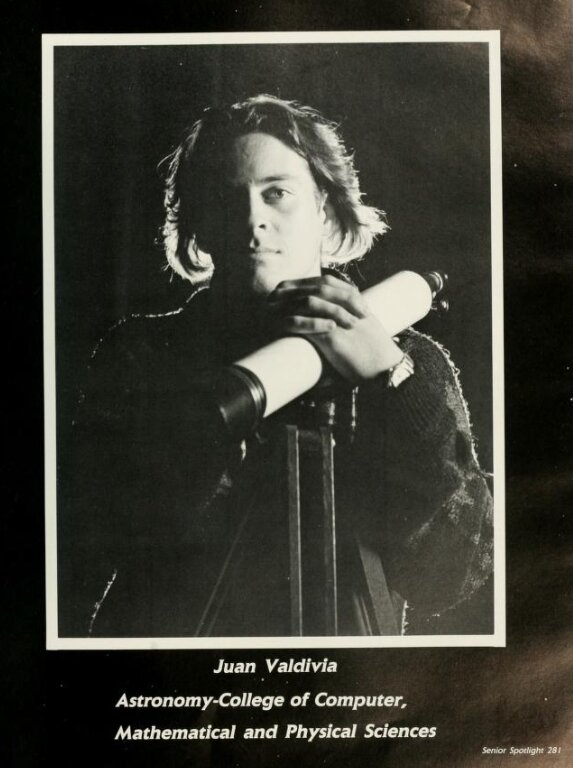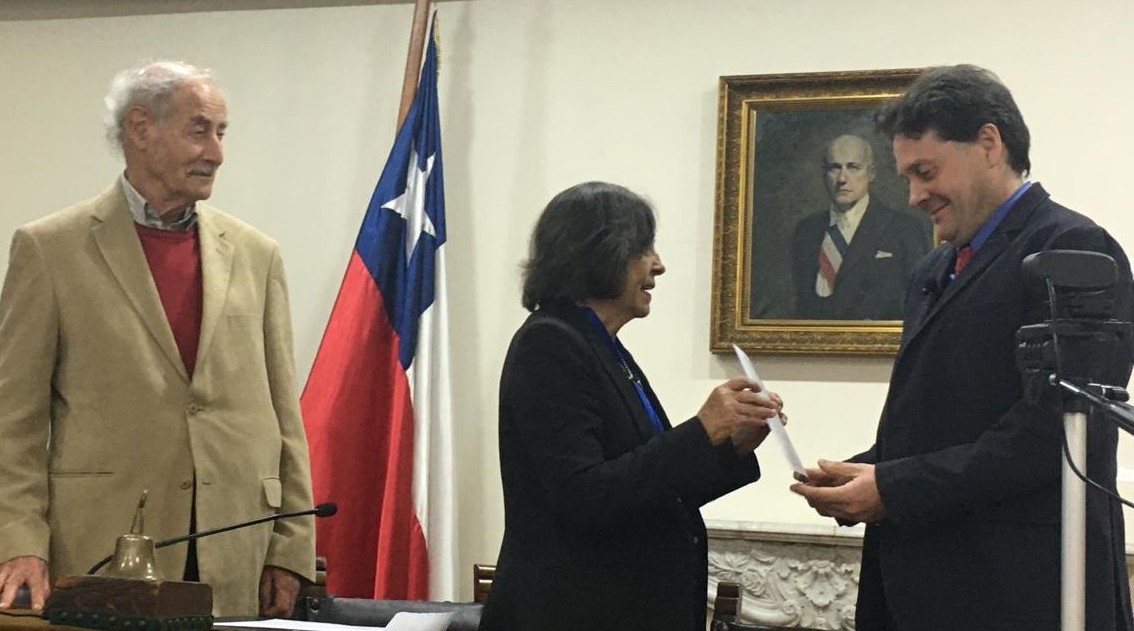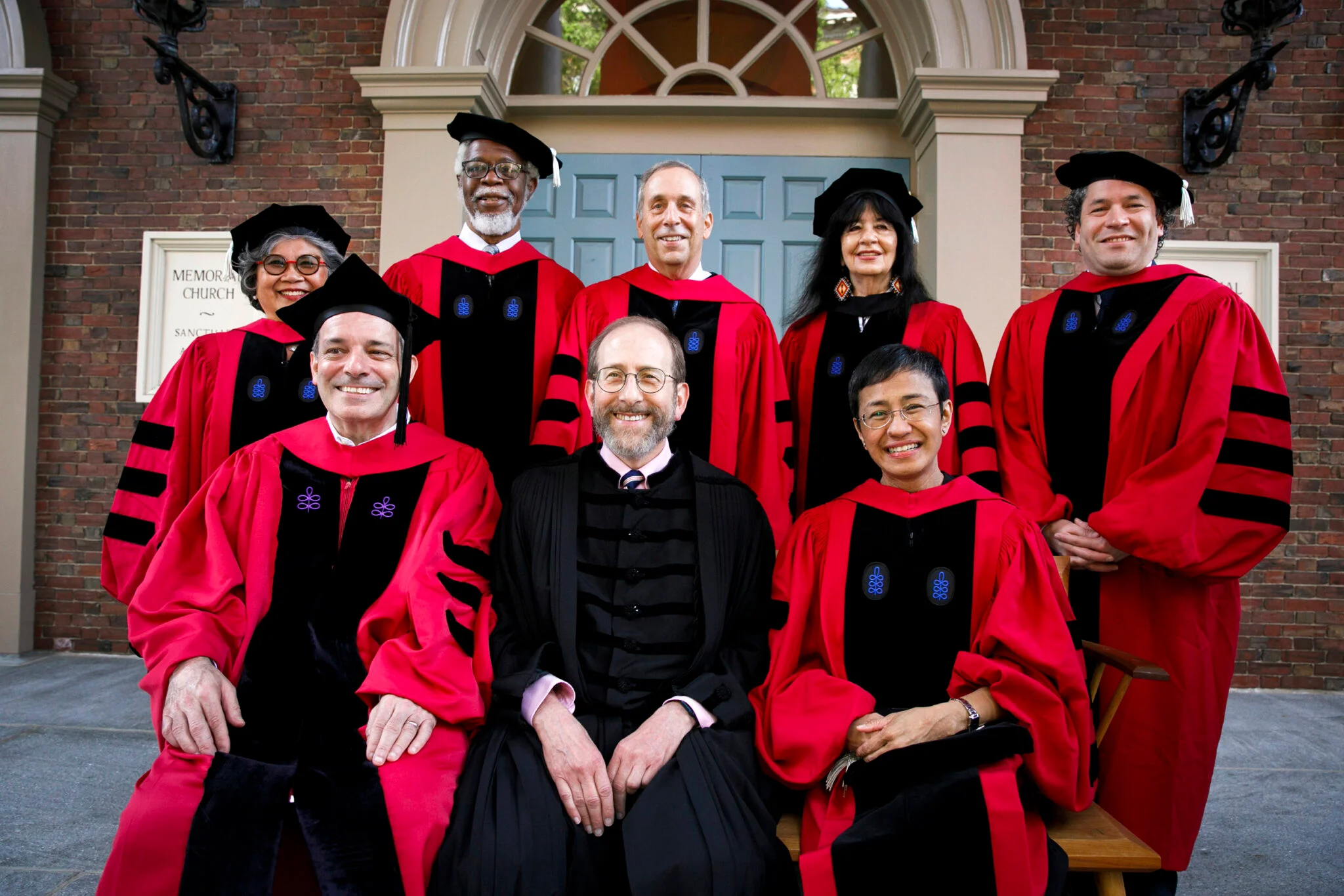Every year, the College of Computer, Mathematical, and Natural Sciences (CMNS) Alumni Network offers summer awards to help undergraduates defray costs related to conducting research, attending conferences or interning. Two physics majors, Patrick Chen and Sarah Waldych, were among this year's receipients. 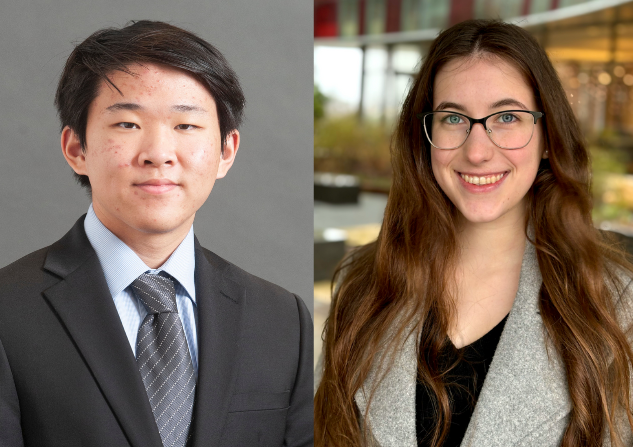 Patrick Chen/Sarah Waldych
Patrick Chen/Sarah Waldych
Read below how this year’s award recipients plan to further their professional and career development with funding from the CMNS Alumni Network Endowed Undergraduate Awards program.
Sarah Waldych
Since her freshman year, junior physics and astronomy double major Sarah Waldych has been actively involved in particle physics research at UMD. As part of this research, Waldych contributed to the construction upgrades of the Compact Muon Solenoid (CMS), a particle detector at the European Council for Nuclear Research. She has traveled internationally and domestically for her studies—including traveling to Hamburg, Germany, to study detector physics and recently delivering a feasibility study at the Future Circular Collider workshop at the Massachusetts Institute of Technology.
This summer, Waldych will apply this knowledge at the University of Virginia by helping construct particle detectors that will be utilized in the new high luminosity upgrade within the CMS in Europe.
“The financial support provided by this award will be instrumental in covering my travel and living expenses during my time at the University of Virginia, allowing me to continue my involvement in these significant research efforts,” Waldych said.
Patrick Chen
Junior physics and mathematics double major Patrick Chen will use his award funding to travel to Oak Ridge National Laboratory and gain hands-on experience with neutron scattering experiments. Chen modeled the magnetic behavior of crystals while interning with the National Institute of Standards and Technology (NIST) last summer. He looks forward to working with Oak Ridge instrument scientists to perform neutron scattering and reconcile the results with the model he developed last summer.
“My ability to travel with my mentor, [NIST Instrument Scientist] Jonathan Gaudet, to this experiment this summer depended on me receiving this award,” Chen said. “So when I saw that I was selected for the award, I was extremely excited.”
This experience will be especially useful because Chen hopes to pursue graduate studies in condensed matter physics, where neutron scattering is an important method of studying and characterizing materials.
Yoshi Chettri
Passionate about contributing to the field of medicine, junior biological sciences major Yoshi Chettri aims to pursue a Ph.D. in medical sciences after graduating. Chettri’s summer research in UMD’s Fischell Department of Bioengineering will focus on designing a vessel-on-a-chip model for vascular endothelium cells to evaluate the effects of everolimus, an mTOR inhibitor, on cell morphology, motility, cell-cell junctions and more.
This research is pivotal in our lab’s efforts to understand the effect of mTOR-inhibiting drugs on the vascular endothelium. After completing this project, Chettri hopes to share his findings at a conference.
“This financial support is not just a monetary contribution, but a significant encouragement that will enable me to further my academic and professional endeavors this summer,” Chettri said. “The opportunity to oversee an entire project will be a unique and invaluable experience. I view this project as a pivotal step in fulfilling my ambition to contribute significantly to the world of medicine.”
Hari Kailad
Sophomore computer science major Hari Kailad works in the Maryland Cybersecurity Center (MC2) on research problems related to cryptography. He is working with Electrical and Computer Engineering Associate Professor Dana Dachman-Soled and Intel on estimating the security hardness of cryptosystems using extra side channel information.
“This funding will allow me to spend the summer working with MC2 on this project and provide an opportunity to focus on my research to work towards a Ph.D.,” Kailad said. “I am really looking forward to learning more about lattice-based security, ideal lattices and side channels. Post-quantum cryptography is relatively new, and determining the hardness of lattice-based problems is quite important.”
Outside of his research with MC2, Kailad is a member of the Cybersecurity Club and teaches a class on binary exploitation, where students learn how to identify and exploit vulnerabilities.
HaeSung Lee
Born and raised in South Korea, junior biological sciences major HaeSung Lee has a profound interest in understanding neurological gene expression and its correlation with behavior changes. As an undergraduate researcher in Biology Assistant Professor Scott Juntti’s lab, Lee studies the olfactory senses of cichlid fish and the physiological mechanisms underlying sex-specific responses to pheromones. Lee also serves as a peer research mentor for the First-year Innovation and Research Experience (FIRE) Molecular Diagnostics stream, where she guides student research groups and designs methods for detecting breast cancer biomarkers.
This award will allow Lee to live in Boston this summer for her internship at the Beth Israel Sadhguru Center for Conscious Planet, where she will research postoperative delirium in cardiac patients.
“I am thrilled to join the clinical research team this summer to investigate the effects of medications on neurocognitive function and chronic pain following surgery,” Lee said. “I am also delighted to connect with individuals in this field and expand my knowledge through communication.”
Ying-Rong (Megan) Liu
Junior neuroscience and animal science double major Ying-Rong (Megan) Liu, an international student from Taiwan, works in Animal and Avian Sciences Assistant Professor Andrew Broadbent’s molecular virology research lab. Liu’s research on avian reovirus and infectious bursal disease virus has potential implications for cancer treatment.
Liu plans to use this award for registration and travel expenses to present her research this June at the American Society for Virology annual meeting—the first conference Liu has attended.
“Presenting at this conference will be a major step forward for both my career and personal endeavors,” Liu said. “The experience will help me develop essential skills in presenting data and scientific communication, which will help me in reaching my career goals as I am planning to apply for a master’s or Ph.D. program in virology or immunology and aiming to become a research scientist in the future.”
Adam Melrod
Math has always been “beautiful” to junior mathematics major Adam Melrod, who plans to use his award funding to attend a course on motivic homotopy theory at the Park City Mathematics Institute.
Melrod conducts research at the intersection of model theory and algebraic geometry. In his free time, he collaborates with other UMD students interested in logic to update the online model theory Wiki—a passion project to organize model theory knowledge in one “easily referenceable and searchable place.”
“This award will provide me with the opportunity to explore many new avenues within my field and engage in research that would have otherwise been financially infeasible,” Melrod said.
Disha Sanwal
Junior chemistry and mathematics dual-degree student Disha Sanwal joined Chemistry and Biochemistry Professor Pratyush Tiwary’s lab during her first year of college. There, while developing computational methods to explore hard-to-model biophysical systems, she discovered her appreciation for math and decided to pick up her second degree in mathematics.
This summer, Sanwal will put her knowledge to work at Schrödinger in New York City as a computational research intern. She also plans to attend the 2024 MolSSI MAPOL Computational Chemistry workshop at the University of North Carolina at Charlotte in June.
Alexander Wolfson
Alexander Wolfson is on the path to medical school as a sophomore chemistry major. This summer, he will study an ocular surface disease with University of Maryland Medical System Assistant Professor of Ophthalmology Sarah Sunshine.
“I am most looking forward to spending time at the clinic as well as the lab, combining research with clinical care and learning from a great physician,” Wolfson said. “I was so happy when I found out that I was a recipient of this award because it will be a major help to me as I do research in Baltimore, away from home.”
On campus, Wolfson is an undergraduate research assistant in Chemistry and Biochemistry Professor Lawrence Sita’s lab and serves as a recruitment ambassador for CMNS.
Are you interested in supporting undergraduate students in their professional development and research activities? Consider donating to the CMNS Alumni Network Current-Use Undergraduate Award Fund.
Original story: https://cmns.umd.edu/news-events/news/alumni-network-endowed-undergraduate-awards-2024
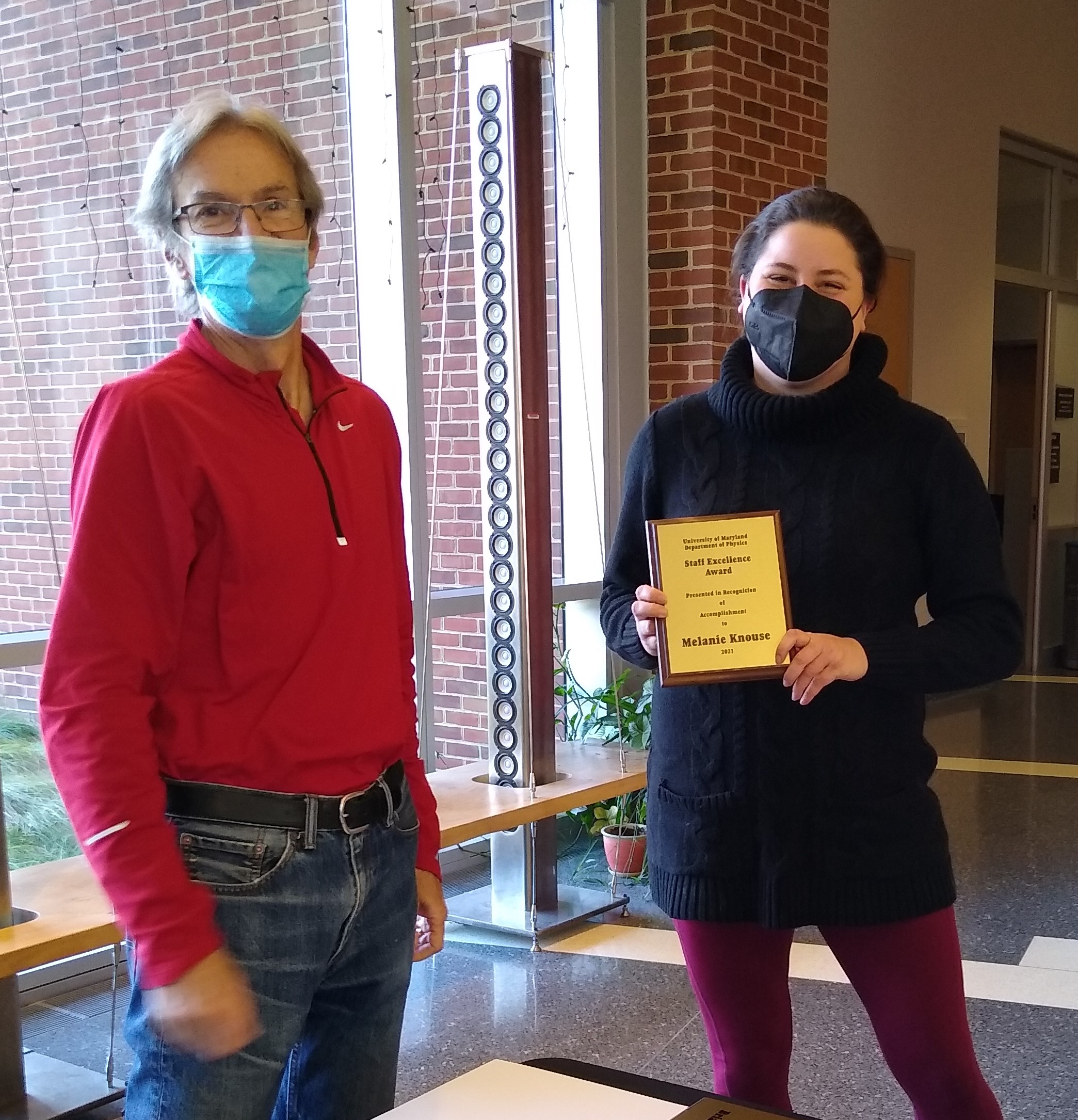 Steve Rolston presents Melanie Cline with a Staff Excellence Award in 2021.Her mother, Kari Knouse Aldridge, managed sponsored projects for UMD physics until 2006. As a child, Melanie was a frequent and welcome visitor to the John S. Toll Building.
Steve Rolston presents Melanie Cline with a Staff Excellence Award in 2021.Her mother, Kari Knouse Aldridge, managed sponsored projects for UMD physics until 2006. As a child, Melanie was a frequent and welcome visitor to the John S. Toll Building.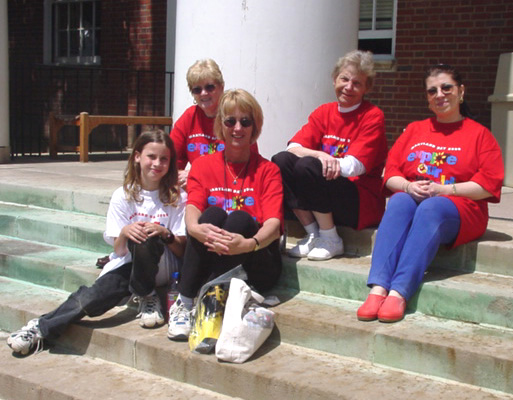 Melanie and her mother Kari Aldridge (front) at Maryland Day 2000.
Melanie and her mother Kari Aldridge (front) at Maryland Day 2000.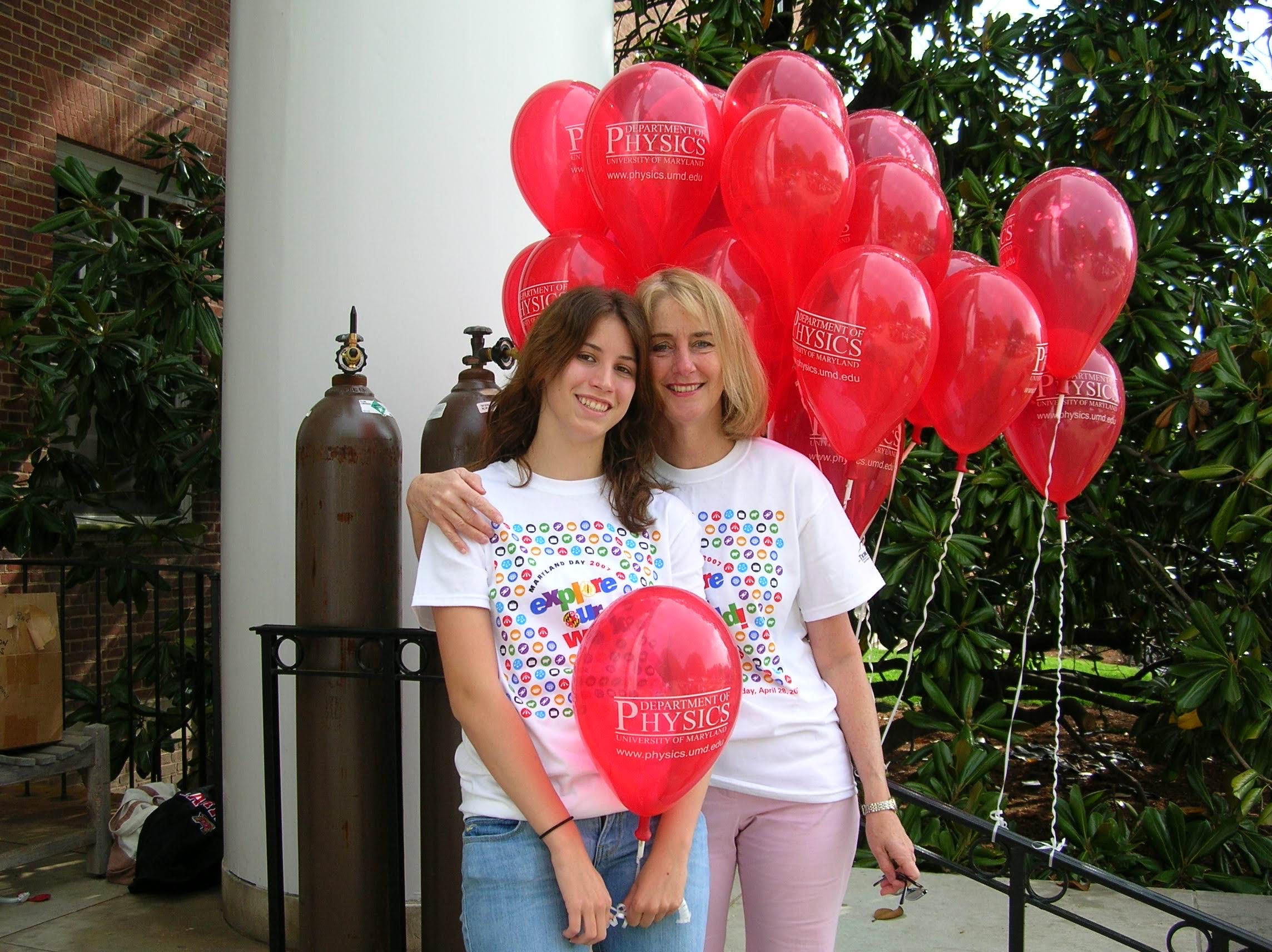 Melanie and Kari at Maryland Day 2007.
Melanie and Kari at Maryland Day 2007.